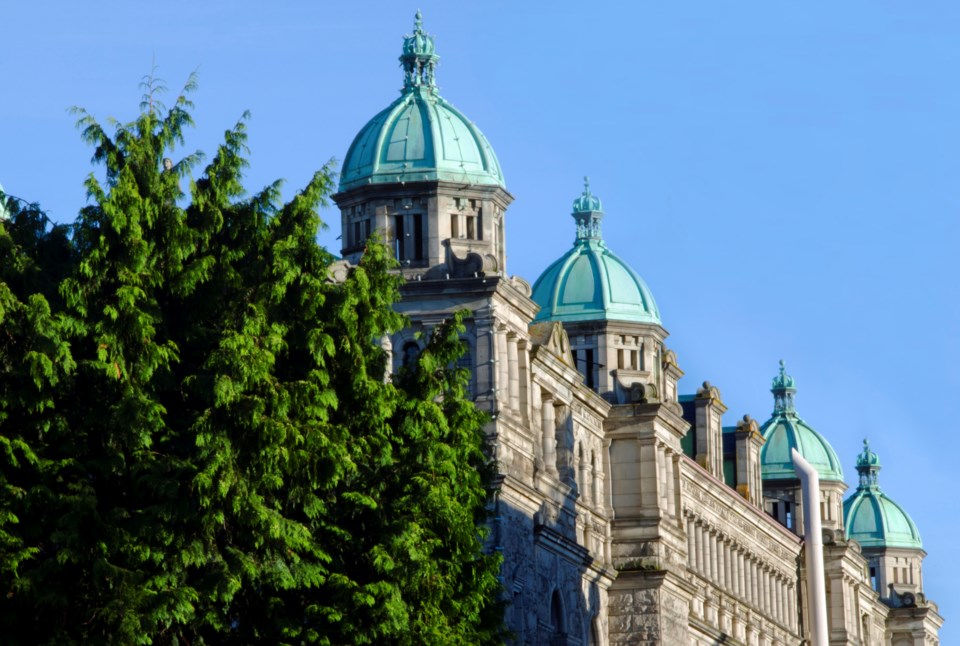The messy dispute surrounding Indigenous participation in a new hospital project in Duncan provides a cautionary tale for Premier David Eby about the need to overhaul some of the archaic policies of his predecessor before they blow up in his face.
Eby was left to solve an uncomfortable dilemma not of his own making this month.
On the one side, a union-only construction program crafted by the John Horgan government.
On the other, a mid-Island First Nation locked out of helping to build a $1.45 billion hospital on its own land because its construction crews weren’t unionized.
The conflict perfectly encapsulates the tensions these days within the NDP – out-of-date policies from the last administration, designed as favours to the party’s long-time friends, clashing with the modern landscape of Indigenous reconciliation being led by the current premier.
The Cowichan Tribes had for months been trying to negotiate a solution to being locked out of the Duncan hospital, but to no avail. The NDP was in the middle of changing leaders and wasn’t listening. Plus, the previous Horgan government had made it clear that union-only construction rules, called community benefits agreements, should be adhered to rigidly.
The Cowichan Tribes, however, was unimpressed.
“It is unacceptable that the traditional peoples of this land should be excluded and deliberately prevented from playing a role in the building of vital community infrastructure,” Chief Lydia Hwitsum wrote publicly Jan. 19.
“This amounts to a rejection of our Rights and Title within our territory. It is hard to believe in today’s environment of Truth and Reconciliation that we would find ourselves in this situation.”
By the time the issue burst into the legislature this month, in the form of angry Indigenous contractors sitting in the public gallery and Opposition MLAs hurling fiery questions, it was already a full-fledged political hot potato.
Eby, to his credit, barely hesitated in crafting the solution after it became a political issue on the floor of the legislature. He created an exemption for the Cowichan Tribes. Indigenous contractors on the project won’t have to be unionized to work on the site, he ruled. Behind the scenes, work started to make sure at least some of the remaining sub-contract work was directed towards Indigenous companies.
Still, it was weeks of negative controversy that the NDP could have, and should have, avoided.
Eby didn’t create the community benefits agreement program, he inherited it from the last premier. It actually dates back to the 1990s BC NDP government, when unions were the party’s largest donors and held all the sway in the hierarchy of the party’s internal power structure.
Horgan came from that era of the NDP, as did his senior strategists and Labour Minister Harry Bains. It made sense for them to resurrect what amounts to a public kickback scheme to the party’s friends in organized labour, because that’s the NDP they knew.
Eby, however, owes organized labour nothing.
He crafted the law that banned union and corporate donations, neutering the financial grip unions held on the party. His strategists have experience from the 2020s, not the 1990s. And the NDP’s power base now lies in urban Metro Vancouver, instead of the union-heavy natural resource towns of the NDP’s past.
The new premier has also placed a renewed emphasis on First Nations reconciliation. He was the first premier sworn in at an Indigenous ceremony, at the Musqueam Indian Band. In the last month, he’s delivered several speeches to the natural resource and forest sectors, warning that Indigenous consent and participation is now a requirement of proceeding with major B.C. projects.
All of which must have made it extremely frustrating for Eby to watch the province’s largest First Nation, in Cowichan, accuse his government of denying its rights to fairly participate in a project on its own territory. It is the antithesis of the Indigenous-led future Eby has been promoting.
The grand irony of CBAs was that they were supposed to boost Indigenous employment on public projects. Instead, they ended up locking out one of the most sophisticated, modern First Nations from even participating. The public is paying for this policy – it drives up the cost of taxpayer-funded roads, bridges and hospitals by an extra seven per cent to help line the pockets of NDP-friendly unions – but, apparently, without achieving the stated benefits.
Eby’s exemption for the Cowichan Tribes is the first of its kind for the CBA program, but it will not be the last. He’ll need to turn that policy into swiss-cheese to make it relevant to today’s landscape.
The Horgan government left Eby a political landmine in the form of CBAs.
He’ll have to start combing through the books, looking for others.
The last thing Eby needs as he tries to push the NDP into the future, is antiquated holdovers from the past dragging him back down.
Rob Shaw has spent more than 14 years covering B.C. politics, now reporting for CHEK News and writing for Glacier Media. He is the co-author of the national bestselling book A Matter of Confidence, and a regular guest on CBC Radio.


.jpg;w=120;h=80;mode=crop)
